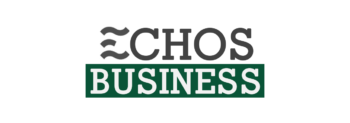Creating a high-performance sales team is crucial for any business looking to grow and thrive in competitive markets. Sales teams are the driving force behind revenue generation, and their success directly influences the company’s bottom line. To build a team that consistently meets and exceeds sales targets, a strategic approach to recruitment and training is essential. This article will provide comprehensive tips on recruiting top sales talent and implementing effective training programs to build a high-performance sales team.
The Importance of a High-Performance Sales Team
A high-performance sales team is not only about hitting numbers but also about driving long-term growth, building strong customer relationships, and maintaining a motivated and skilled workforce. High-performing teams are adaptable, data-driven, and aligned with business goals. Companies that invest in developing strong sales teams tend to see improved market performance, increased customer satisfaction, and a solid return on investment.
Recruitment: Finding the Right Sales Talent
Recruiting top sales talent is the first step in building a high-performance sales team. Effective recruitment involves not only identifying candidates with the right experience but also those who fit your company culture and values.
-
Define Clear Job Roles and Expectations
Before starting the recruitment process, clearly define the job roles and expectations. Determine what skills, experience, and qualifications are necessary for success in your industry and specific market. Clearly outlining the job’s requirements will help attract candidates who are best suited for the role, saving time and effort during the selection process.
For example, if your company focuses on B2B sales, candidates with a background in negotiating large contracts or managing complex sales cycles would be more ideal than those with retail sales experience. The clearer your expectations, the more effectively you can filter through candidates.
-
Look Beyond Experience: Focus on Attitude and Adaptability
While sales experience is important, it’s crucial to evaluate a candidate’s attitude and adaptability. The sales landscape is constantly evolving, with new tools, customer behaviors, and market trends emerging regularly. A candidate who demonstrates adaptability, resilience, and a positive attitude is more likely to excel in the long run than one who relies solely on past experience.
Use behavioral interviews to assess how candidates handle challenges, their problem-solving abilities, and how they’ve adapted to change in their previous roles. This approach ensures you’re selecting individuals who can thrive in dynamic sales environments.
-
Leverage Referrals and Networks
Referrals from current employees or industry connections can be a valuable source of top sales talent. Sales professionals who come recommended often have a proven track record of success and may already have a working knowledge of your industry. Encourage your team to recommend candidates and use your professional network to find potential hires who may not be actively looking for a job but are open to new opportunities.
Training: Developing Skills for Success
Once you’ve recruited the right sales talent, the next step is to train them effectively. A well-structured training program is essential for developing the skills needed to drive sales performance.
-
Onboarding: Setting the Foundation for Success
A comprehensive onboarding process sets the stage for success. During onboarding, new hires should be introduced to your company’s products, services, sales processes, and culture. This is also the time to provide training on essential tools such as customer relationship management (CRM) systems, communication platforms, and analytics tools.
The goal of onboarding is to ensure new team members are equipped with the knowledge and resources they need to hit the ground running. An effective onboarding process also minimizes the learning curve, allowing new salespeople to contribute to sales efforts more quickly.
-
Ongoing Sales Training and Development
Sales is a skill that requires continuous development. Even seasoned professionals need regular training to stay sharp and up-to-date with industry trends. Implement ongoing training programs that focus on various aspects of sales, including:
- Product Knowledge: Regular updates on product features, benefits, and value propositions.
- Sales Techniques: Training on negotiation, lead generation, closing techniques, and objection handling.
- Customer Engagement: Courses on building customer relationships, active listening, and emotional intelligence.
- Technology and Tools: Updates on how to use CRM systems, sales analytics, and automation tools effectively.
By offering regular training sessions, you ensure that your sales team remains skilled, motivated, and aligned with the latest industry practices.
-
Mentorship and Peer Learning
Pairing new or less experienced salespeople with top performers through mentorship programs can accelerate learning and skill development. Mentorship allows for knowledge transfer, as senior salespeople share their strategies, insights, and best practices.
Additionally, encourage peer learning through team discussions, workshops, and role-playing exercises. This fosters a collaborative environment where team members learn from each other and improve their sales techniques collectively.
Measuring and Improving Sales Performance
Building a high-performance sales team is an ongoing process that requires consistent evaluation and improvement. Set clear performance metrics to measure success, such as:
- Sales revenue: The total amount generated by each team member.
- Conversion rates: How many leads are successfully converted into paying customers.
- Customer retention: How well salespeople maintain long-term relationships with clients.
- Pipeline management: How effectively sales professionals move prospects through the sales funnel.
Regularly assess these metrics to identify areas for improvement, reward top performers, and adjust training programs as necessary.
Conclusion
Building a high-performance sales team requires a strategic approach to both recruitment and training. By focusing on hiring adaptable, driven talent and providing continuous development opportunities, your business can create a team that not only meets its sales goals but thrives in a competitive market. Investing in both the growth of your salespeople and the improvement of your sales processes will lead to long-term success and sustainable growth.



